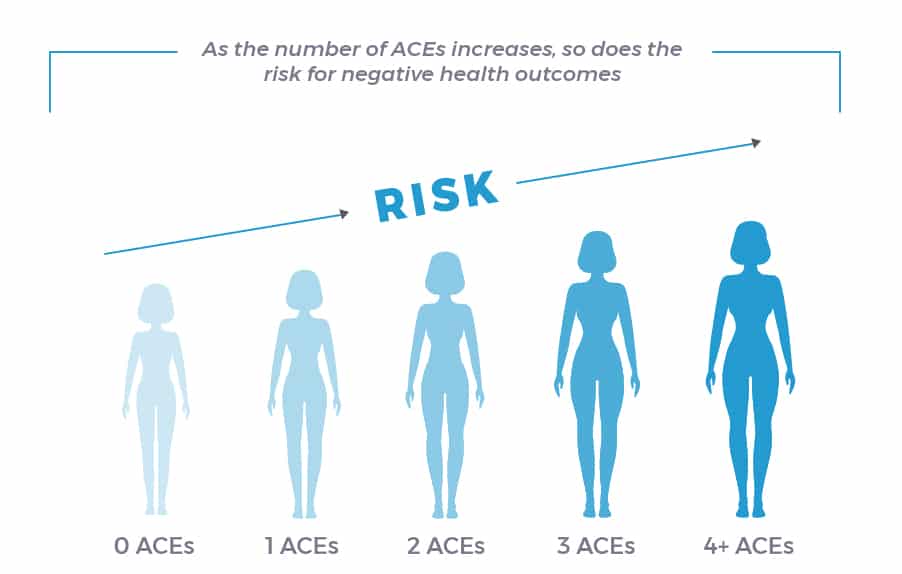Adverse Childhood Experiences Assessment
Modern medicine recognizes the significant impact that adverse childhood experiences have on one’s health as an adult. It boils down to this – the rougher a person’s childhood, the higher risk for health problems later in life. The Adverse Childhood Experiences (ACE) Assessment is a 10-question test intended to measure a person’s risk factor for developing health issues due to adverse childhood experiences.
What Does My Ace Score Mean?
As an ACE score increases, so does the risk of disease, social and emotional problems.
A high ACE score may suggest that preventive measures be taken to stay well. Attending therapy sessions, eating well and exercising, developing strong personal relationships, and participating in an integrative wellness program (ie. yoga, meditation, art therapy) are examples of therapies and activities that can build resilience and wellness.

Our mental health professionals can review your ACE score and discuss treatment and therapy options. Call Harmony Bay today at 855.765.6399 to discuss your ACE score along with options to improve your overall wellness.
Sources: Robert Wood Johnson Foundation Centers for Disease Control and Prevention